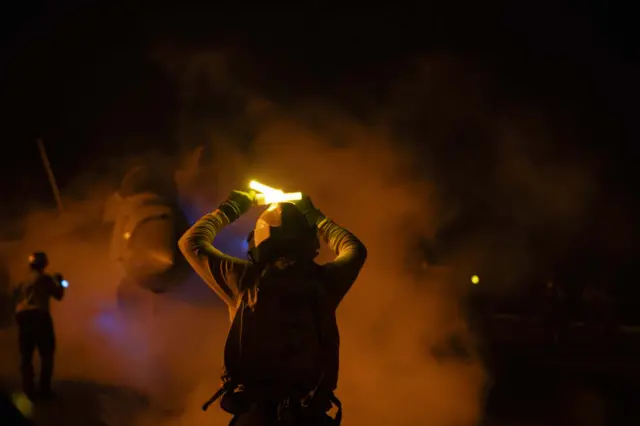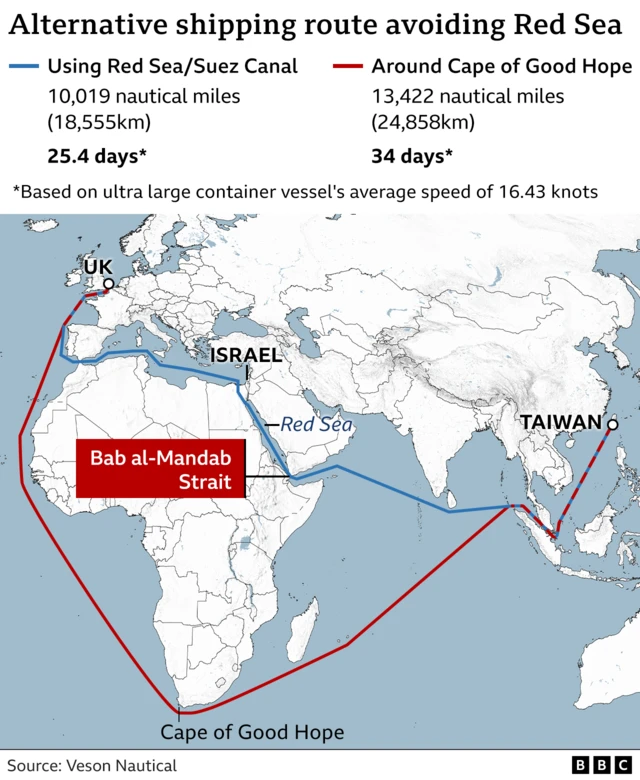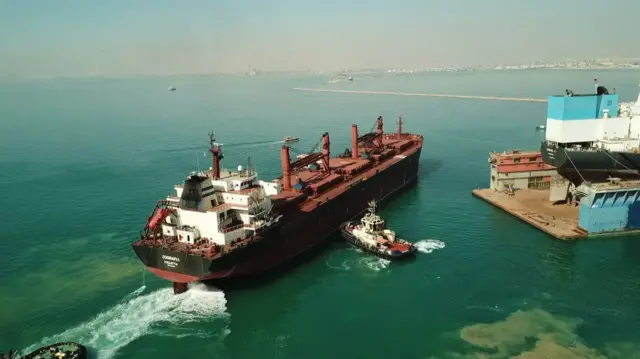Thanks for following our coveragepublished at 15:08 GMT 23 January 2024
 Gem O'Reilly
Gem O'Reilly
Live reporter
 Image source, US Navy handout/EPA
Image source, US Navy handout/EPAThe Houthis have said they will retaliate
It's just past 18:00 in Yemen and 15:00 here in London, where our team has been bringing you latest on the second round of US-UK missile strikes on the Houthis.
Here's a summary of what's happened in the last 24 hours:
- The US and UK said they hit eight Houthis targets overnight, after attacks in the Red Sea continued following their last joint operation
- UK PM Rishi Sunak updated MPs in the House of Commons, saying the strikes were carried out "in line with international law and self-defence," adding that the UK is "not seeking confrontation"
- The Houthis, who say they have been targeting ships linked to Israel and the West, vowed to retaliate
- Iran's foreign minister, Hossein Amir-Abdollahian, said the country has given a warning to the US that their strikes in Yemen are a "strategic mistake
This live page was brought to you by Nathan Williams, Jake Lapham, Rachel Russell, Aoife Walsh and me. Follow more of our coverage here.



